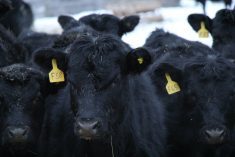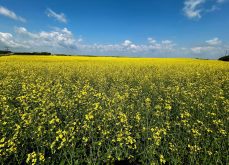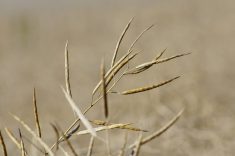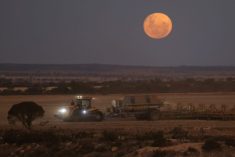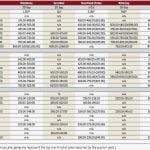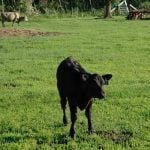Sydney | Reuters –– Australia on Friday approved the A$386.5 million (C$379.3 million) sale of the country’s largest private landholder S. Kidman and Co. to a consortium led by the country’s richest woman Gina Rinehart, after blocking two previous bids.
Rinehart and her minority partner, Chinese developer Shanghai CRED, will now complete the purchase of S. Kidman, which runs cattle and pastoral activities on tracts of land the size of South Korea.
The property sale has been a lightning rod for concerns about the sale of Australian agriculture and other key assets to foreign investors, with the government blocking earlier bids to Chinese-led groups.
Read Also

U.S. grains: Soybeans fall as rapid harvest overshadows China trade hopes
U.S. soybean futures closed lower on Friday as pressure from a fast-advancing U.S. harvest offset early-session support from hopes that upcoming U.S.-China talks could revive stalled soybean trade.
“It has been two years since the shareholders resolved to sell and 18 months since the process began so it is nice get the regulatory approval,” Greg Campbell, CEO and managing director of S. Kidman, told Reuters.
Domestic ownership of agriculture is seen as crucial for Australia to cash in on global food demand and to keep tax revenues onshore.
“Kidman will remain majority Australian owned under this proposal, and remain an Australian incorporated company headquartered in South Australia,” Treasurer Scott Morrison said in a statement on Friday.
Rinehart is Australia’s richest woman with a net worth of $11.7 billion, according to Forbes, based on an iron ore empire in Australia’s mineral-rich Pilbara, where she grew up.
Campbell said the deal was expected to be completed by Dec. 25, but final Chinese regulatory approval is still outstanding.
The cattle station Anna Creek will not be sold to the Rinehart-led consortium because of its close proximately to a government-owned weapons-testing range, and will instead be sold to private Australian cattle farmers.
— Colin Packham is a commodities correspondent for Reuters based in Sydney, Australia.


